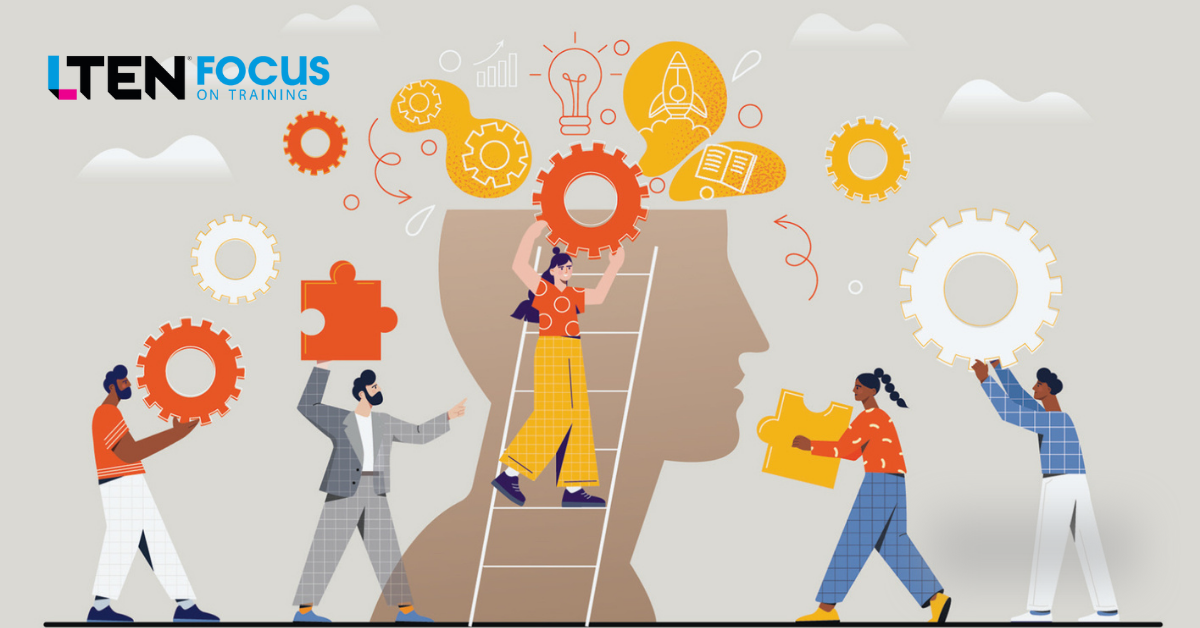
Talent Management – By Anna Copeland, Natasha Travis and Wendy Heckelman, Ph.D
A culture of development helps engage and retain talent
 Myovant Sciences, a rapidly growing biotech company, embarked on a comprehensive talent architecture initiative to shift from startup mode to sustained growth. The company aimed to create a culture of development and establish a consistent approach to talent management.
Myovant Sciences, a rapidly growing biotech company, embarked on a comprehensive talent architecture initiative to shift from startup mode to sustained growth. The company aimed to create a culture of development and establish a consistent approach to talent management.
Recognizing the challenges of limited HR staff and competing business priorities, Myovant’s commercial training and development (CT&D) team partnered with WLH Consulting and Learning Solutions. The initiative included:
- Defining leadership competencies.
- Identifying in-role promotional criteria.
- Creating career frameworks.
- Designing a development planning process with a robust toolkit.
- Implementing a consistent coaching framework.
To launch a sustainable development culture, Myovant invested in a comprehensive training initiative and utilized leadership meetings, as well as the national sales meeting (NSM) to kickstart the initiative.
Informed by Change Management
The successful rollout of the talent architecture initiative was due in large part to the active engagement of the core team, made up of CT&D leadership, sales leaders, HR and external consultants. From the outset, the team sought and secured executive leadership support and sponsorship, which served as a strong signal of the organization’s commitment to the project’s success.
Regular check-ins with the chief commercial officer and franchise leaders helped ensure alignment and buy-in from top to bottom, with various advisory groups also established to gather feedback and insights from all levels of the organization. This bottom-up approach was instrumental in fostering a sense of ownership and engagement among individual contributors, many of whom stepped up to take on leadership roles during the rollout.
The core team held regular meetings to translate key findings and recommendations into concrete deliverables, and kept all impacted roles informed of the project’s progress through a well coordinated communications plan, town hall events and ongoing updates.
The rollout was designed as a true organizational change effort, with senior leadership serving as the driving force behind adoption and behavior change. By publicly committing to the new processes and practices, leaders set the tone and paved the way for improved talent management, increased consistency, alignment across the organization, and greater opportunities for employee development and career advancement.
Driving True Behavior Change
The rollout involved training sales and market access field leaders, dedicating time at a national sales meeting to workshop new competencies and providing toolkits for the leader-led team and individual coaching sessions.
Virtual Leadership Meeting
A 90-minute virtual meeting was leveraged to reinforce the commitment to talent development, discuss the competency model, role differentiators, career pathways and outline the planned cascade of talent architecture tools to their team.
Sales leaders workshopped the new competency model and gained alignment on what “good” looks like. They also shared their unique superpowers based on the competency model review and the discussion on development planning.
Live Workshop
A four-hour in-person workshop served to continue the journey of defining Myovant’s development culture and to create strategies to coach to the new competency model in preparation for the organizational cascade. As a result of the live workshop, sales leaders committed to:
- Defining and operationalizing what a development culture means at Myovant.
- Familiarizing themselves with coaching for development framework and competency model.
- Outlining their own development plan.
- Conducting development conversations with each of their direct reports.
- Establishing a cadence of reviewing development plans with direct reports.
- Committing to supporting their direct reports’ development plans.
- Preparing for their role in the upcoming national sales meeting and the expectations set on each regional sales director to take ownership and help implement the talent architecture initiative.
National Sales Meeting
Leadership committed four hours of focused time at the NSM for programming related to the talent architecture initiative to cascade all efforts to the account managers to increase familiarity with the competency model and take an active role in crafting on-the-job developmental experiences that will promote their growth. During the NSM, account managers:
- Familiarized themselves with the competency model and behaviors associated with each competency.
- Created on-the-job development experiences that tied to the competencies.
- Discussed development planning expectations of account managers and their managers.
- Committed to the timeline for incorporating the Myovant competencies and development planning discussions with their managers.
- Made individual commitments that outline how they will help support their development.
Driving Impact Beyond Sales
After the commercial sales team rollout, the development planning efforts are under way to expand to home office functions, marketing and medical with tools designed for on-the-job development and career advancement.
On to Phase 2: Leadership Sustainment
From the genesis of the project, the core team viewed the talent architecture initiative as a longterm change strategy with a multi-phase deployment. Each phase involved various functions and required integration into other operational processes related to performance management, coaching forms and HR and learning management software platforms.
In addition, planning for leadership sustainment was a critical component of this approach because without it all efforts to date would fall. A few strategies were put in place to support the leadership sustainment efforts:
- Vice presidents of sales set the expectation for 100% participation in the submission of development plans across all leadership levels and committed to having a one-to-one development conversation with each of their area sales directors (ASDs).
- The ASDs committed to having one-on-one development conversations with each of their regional sales directors (RSDs) and to facilitating multiple touchpoints to continue to upskill them.
- The ASDs selected RSDs in each territory to act as “field champions” for the talent architecture by participating in future meetings, collecting input for gaps/improvements and so forth.
RSDs scheduled team meetings with reps to continue the cascade for model adoption and development planning.
Final Thoughts
The talent architecture initiative at Myovant Sciences serves as a prime example of how a multiphase change management approach can drive lasting impact in the organization’s approach to talent management. With active engagement from the core team, executive leadership support and a bottom-up approach that fostered a sense of ownership among individual contributors, Myovant was able to kick-start a sustainable development culture that will positively impact employee engagement and retention.
The initiative has already yielded positive results with 100% completion of development plans and plans are under way to expand the development planning efforts to other areas of the organization in Phase 2.
Other organizations can learn from Myovant’s approach and see the benefits of investing in a comprehensive, multi-phase change management strategy for their own talent architecture initiatives.


 Anna Copeland is director, commercial training and development, for Myovant Sciences. Email Anna at anna.copeland@myovant.com.
Anna Copeland is director, commercial training and development, for Myovant Sciences. Email Anna at anna.copeland@myovant.com.
Natasha Travis is associate director, commercial training and development, at Myovant Sciences. Email Natasha at natasha.travis@myovant.com.
Dr. Wendy Heckelman is president and founder of WLH Consulting and Learning Solutions. Email Wendy at wendy@wlhconsulting.com.








